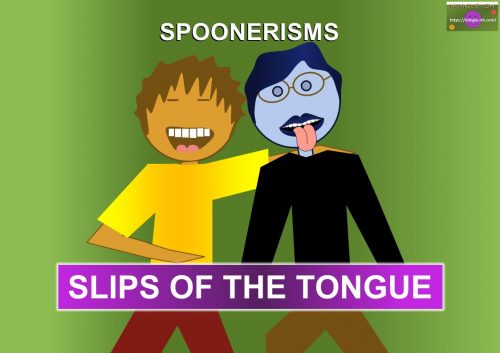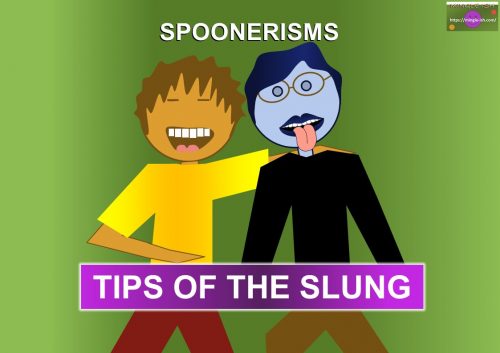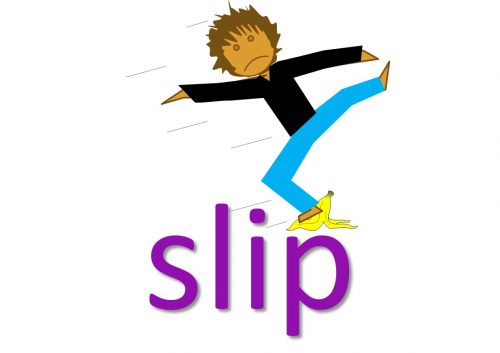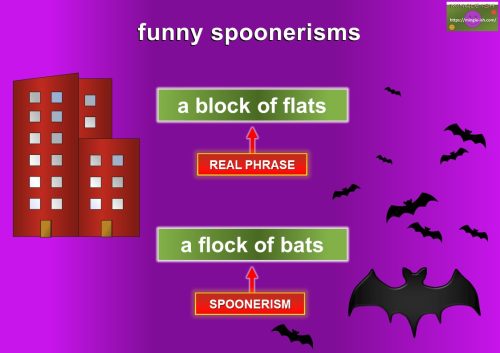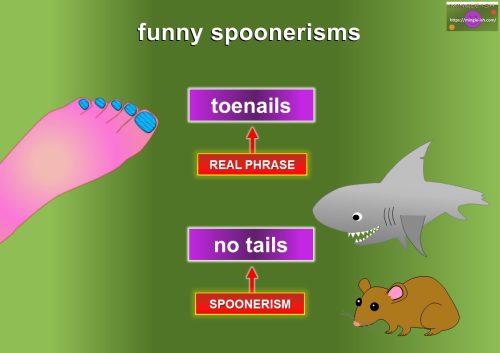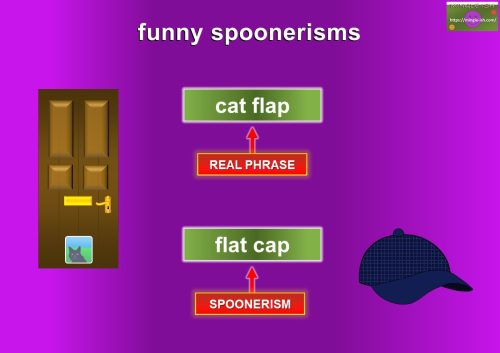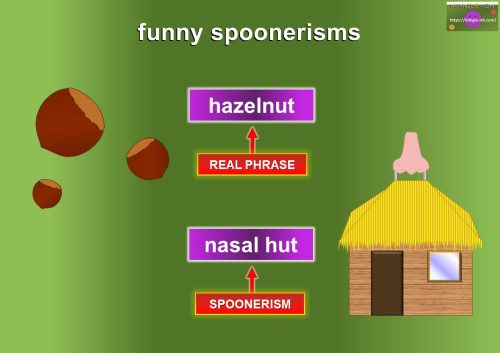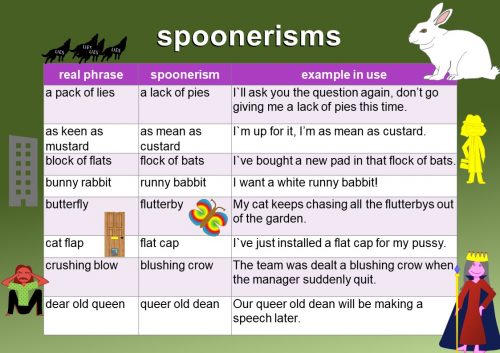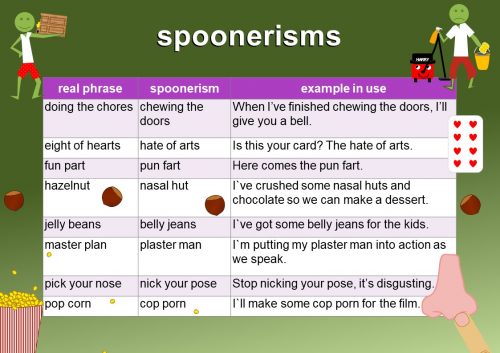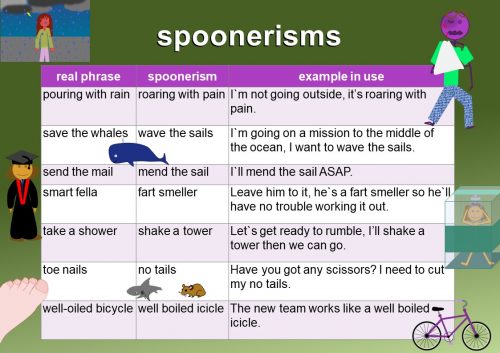Contents
Have you ever gone to say a phrase and accidentally mixed up the letters or sounds? If yes, then that is a spoonerism. I’ll explain more…spoonerisms are when you mix up the first letter or syllable with another letter or syllable in a word or phrase.
People may also refer to this as a ‘slip of the tongue’. This can be accidentally or on purpose for comic effect. Many comedians use spoonerisms to create comedy.
What does slip of the tongue mean?
This phrase means to make a small mistake in speech. For those of you who are still learning the basics, the verb ‘to slip’ means to slide along the ground and sometimes hitting the floor. The noun ‘tongue’ is the organ inside our mouths that helps us speak.
spoonerism examples
Are you still unsure what I mean? Take a look at the pictures below for some ‘slip of the tongue’ examples.
spoonerism list
I think you get the idea now! Let’s take a look at the best funny spoonerisms in action.
Spoonerisms can be used in music, tv, radio, theatre and more for comedic effect. Check out this clip from the Simpsons.
Check out this sketch from comedian Ronny Barker about miss pronunciation (put the subtitles on!).
Here he is again with his comedy partner doing a funny sketch with spoonerisms.
The origin of the spoonerism
Born in 1844, William Archibald Spooner went on to become a British clergyman. For this role he often had to speak in public in front of an audience. Being a nervous man, he often got a bit ‘tongue tied’ and world mess up his words and mix syllables. His audiences loved the laughs he brought by mixing his words and he became a bit of a legend. This is where the spoonerism was born.
Love spoonerisms?
If you’ve enjoyed learning these, you’ll also love eggcorns, malapropisms and mondegreens. Go on, check them out too.
